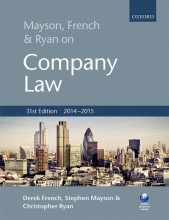Trustees' Powers and Duties and Personal Liability for Breach - Breach of Trust and Breach of Duty - Remedies
5 important questions on Trustees' Powers and Duties and Personal Liability for Breach - Breach of Trust and Breach of Duty - Remedies
Two Categories of Remedy
- Personal remedies (Where the claimant seeks a monetary remedy from the defendant)
- Proprietary remedies (Where the claimant seeks to recover the property or to obtain a security interest in the defendant’s property)
Application of Personal Remedy
Application of Proprietary Remedy
- the trustee has absconded or is insolvent or
- the property is unique or
- the value of the property has increased
- Higher grades + faster learning
- Never study anything twice
- 100% sure, 100% understanding
Enforcement of Primary Obligation
- By directing performance of the duty or
- By granting an injunction to prevent the defendant from committing a breach or
- By making a declaration that the trustees should act or refrain from acting in a particular way
Target Holdings Ltd v Redferns [1996]
The question on the page originate from the summary of the following study material:
- A unique study and practice tool
- Never study anything twice again
- Get the grades you hope for
- 100% sure, 100% understanding































